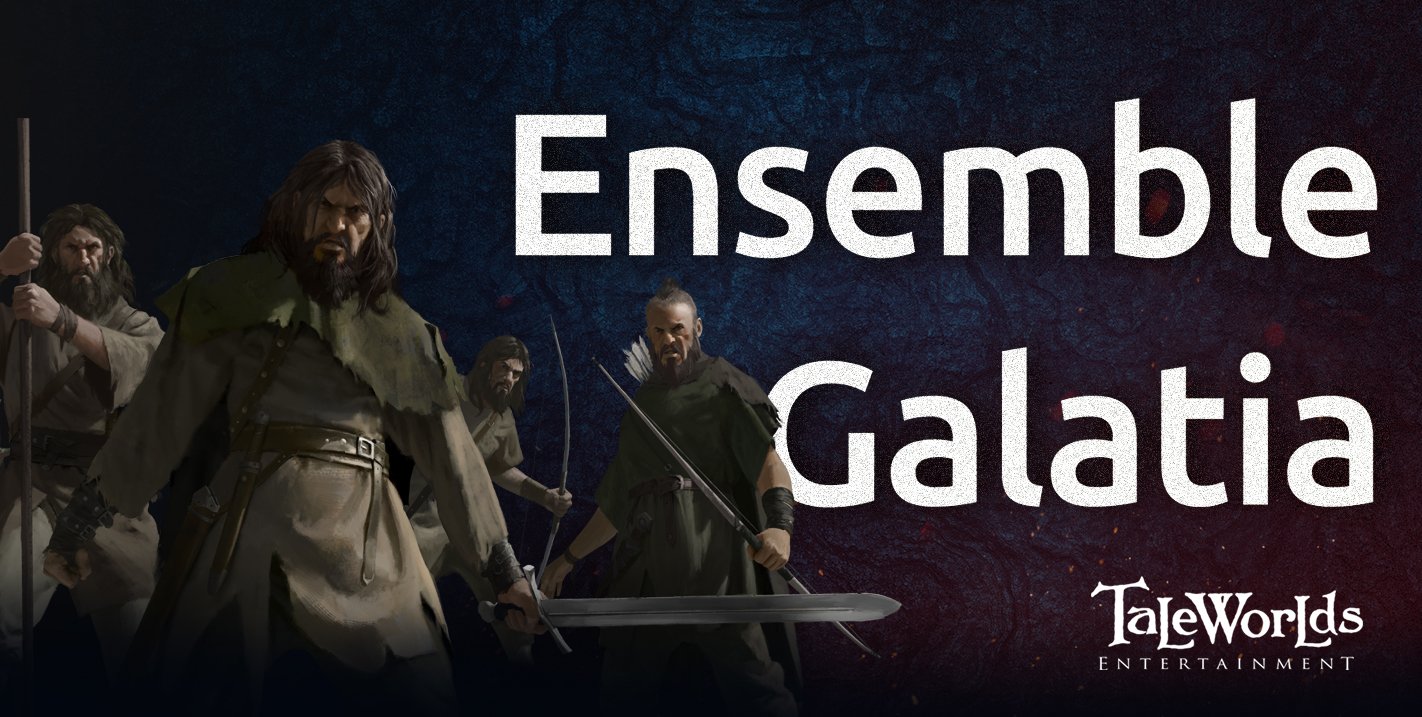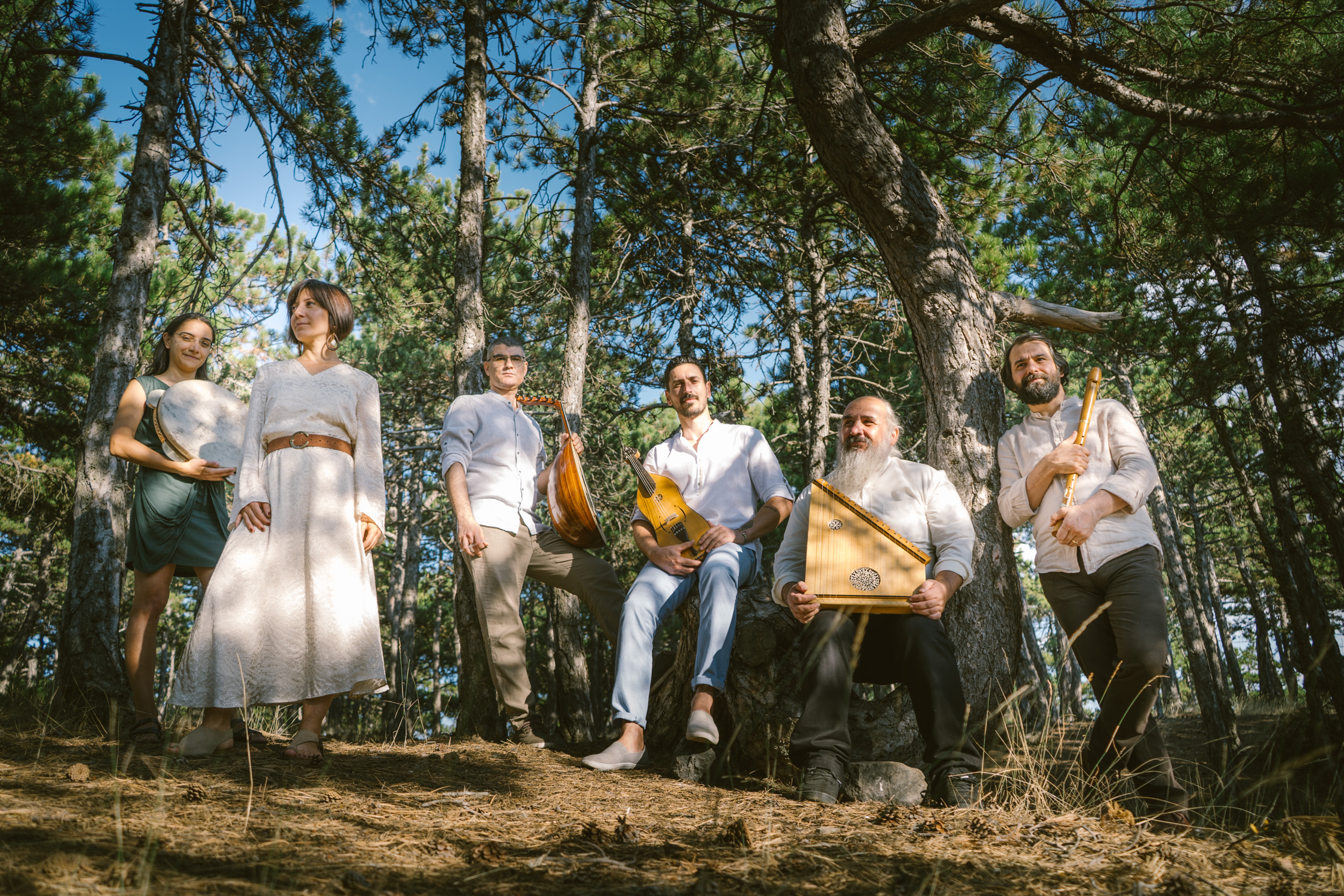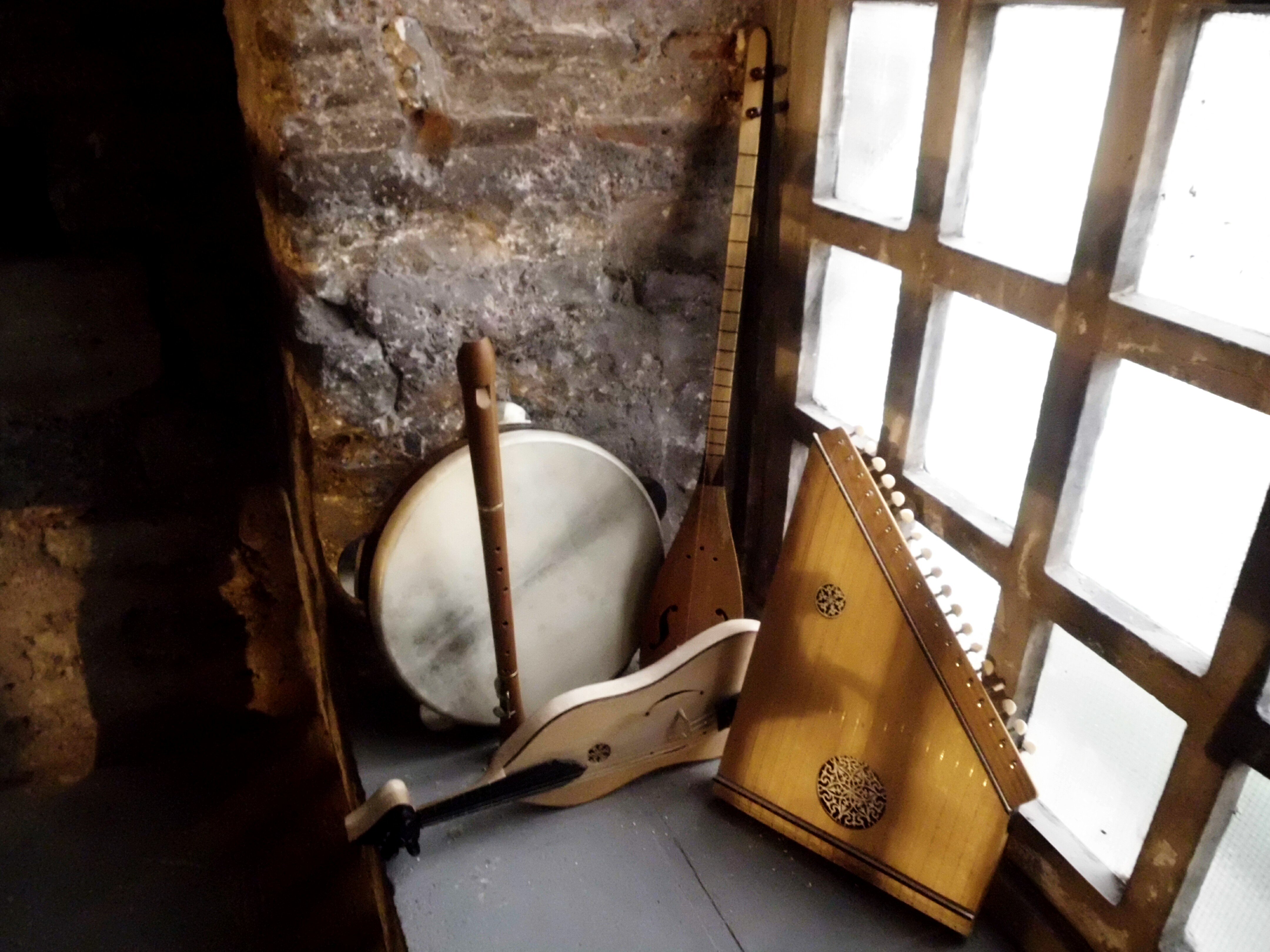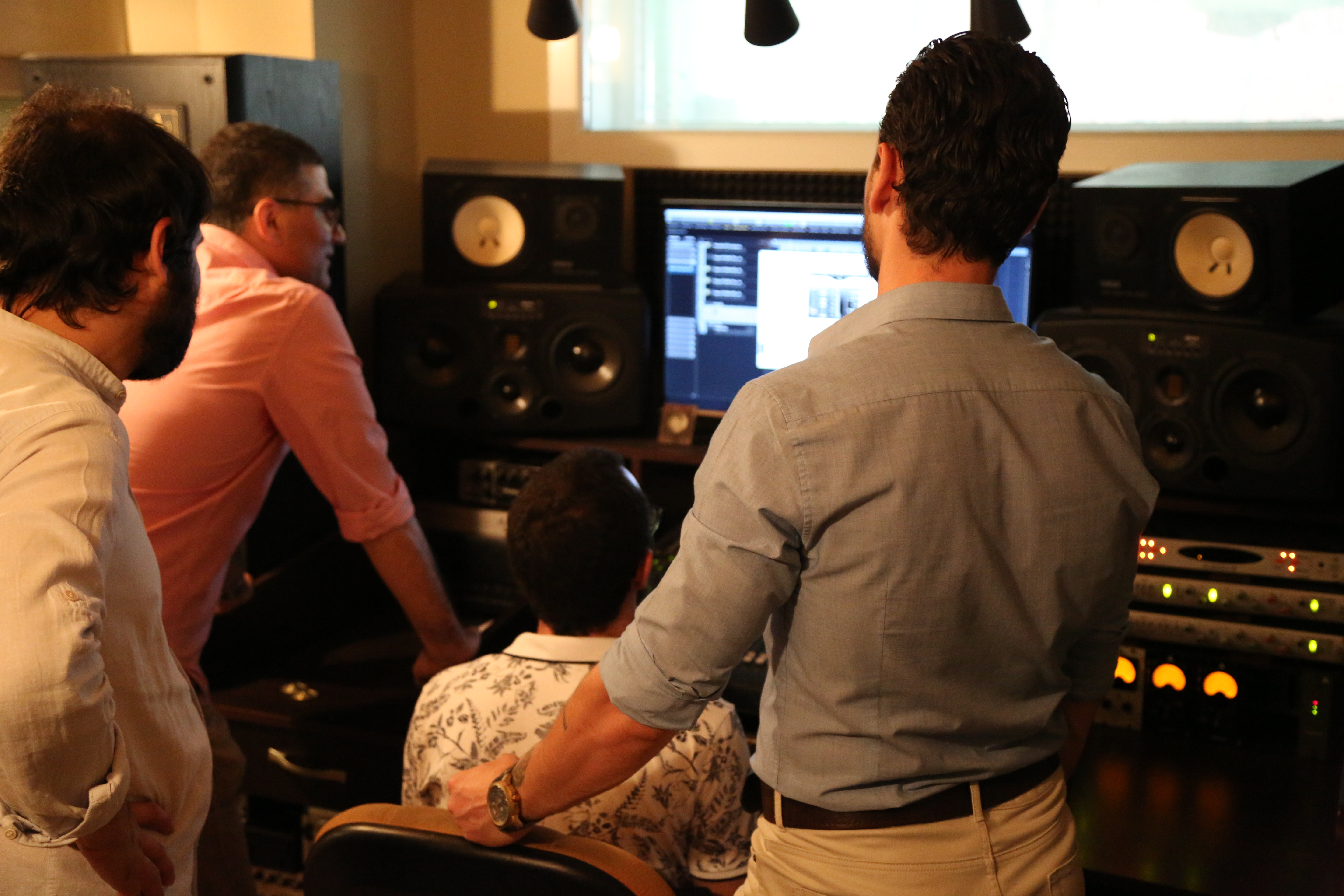
Greetings warriors of Calradia!
Music is a vital part of our lives, and it’s one of the most powerful tools for conveying emotions and feelings – especially in visual media, like films and video games. A good score connects you to the setting as a whole and grounds you to the scene; it evokes certain feelings and images, moves you to feel in a certain way. But that’s not all: music is one of the very few things that you never really forget – and it’s always connected in your brain with the feelings you had when you listened to it. And so, in many years from now, if you happen to hear a certain melody you will be brought back to that moment, to that memory. That is why we take really seriously the music of Mount & Blade II: Bannerlord – and why we have tried to be as authentic as possible, asking a true medieval music band to compose and play music for the game. And it’s not a trivial task – it takes artistic talent, but also lots of research and hard work… But let’s leave that for them to explain in their own words in a special Q&A!
How did the band form?
Individually, our interest in medieval music goes way back, but the idea of forming a band to perform this type of music first developed in 2003. Kaan Bahadır and Selçuk Dalar joined together to dig through an archive of old songs. They picked a few songs from the archive which they could play with some plucked and wind instruments that they own and started tryouts as a duo. Thus formed Ensemble Galatia! In 2004, Serkan Özçifçi joined on stringed instruments and in 2005, Senem Gökçe Okullu on vocals. Gökhan Bulut joined in 2006 and Nevin Şahin joined in 2011, which formed the current line-up of the band. Additionally, there were many musician friends who worked with us and helped our progress but parted ways in time.
What kinds of medieval music (styles) do you focus on?
It’s extremely complicated to categorise all the music composed throughout European over millennia. Still, we think summarising our field of study in two layers won't be too far off the mark.
We can define the first layer as "Chronological". We are focusing on two eras historians define as "High Middle Ages" (11. - 13. Centuries) and "Late Middle Ages" (13. - 15. Centuries).
The second layer is more "Thematic". Across all of the Middle Ages, there were roughly two branches of music, one is "Liturgical" (e.g. Church music), and other is "Secular" (e.g. Folk music). We prefer to work mostly on Secular music of this era.
As a band, we are interested more in the music that impacted on the common medieval citizen's everyday life, instead of institutional ceremonial music. Sometimes it's dance songs from palaces, love songs from Andalusia, songs of knights, wandering bards or songs compiled by a king and dedicated to his holies, or songs of exiles spread all over medieval Europe. These medieval songs embodied with us as tales where anything is possible. I think that's how we pick what we play!
What attracted you to this style of music?
The charm of medieval music is hidden in this period's extraordinary cultural diversity. At the end of the Antique period, the Roman Empire was able to build up a vast cultural realm that spread from the British Isles to North Africa, from Spain to Caspian Sea. Following the break-up of the empire, the fall of Western Rome, the dispersal of central authority to local kingdoms and fiefdoms enabled rich and pluralist structures where indigenous themes stepped up and local languages were written down. And this variety went further when Muslim Arabs conquered Syria, Egypt and Northern Africa from the Romans, Spain from Visigoths, Sicily and parts of Southern Italy from Ostrogoths, and even further still when Magyars and Vikings came down from the north. At this time, the bards of northern pagans, ancient Roman and Greek heritage, vibrant Arab poetry and Berber music from North Africa were all living together across Europe. This interaction provided a basis for a very unique musical liveliness so uncommon up until this point in history. After the Crusades, Turkish, Persian and other Middle-East involvement put a good measure on this diversity. So, in short, the magical and fabulous atmosphere of the Middle Ages is very attractive for sure, but we are most impressed by this cultural diversity.
Can you tell about some of the instruments that you use?
The musical instruments we use are mostly unfamiliar to anyone born into the musical world of the 21st Century. As with cultural elements, music evolves over time. This evolution is also reflected in musical instruments as form, timbre or material. Just like in biological evolution, the evolution of instruments relies on adaptation to new times, otherwise, it gets marginalised and squeezed into obscure music that lives on in small communities or ceases usage and vanishes altogether.
We use more than 20 instruments alternately, based on the region and period of the music we're performing. Some of the instruments we use look familiar to modern ones as they are predecessors of the latter, while others look very unfamiliar. For example, one of our most used instruments, a "Vielle", is similar to a modern viola, and a "Lute" looks quite like a guitar. However, listening to a kind of lap zither named "Psaltery", a northern string "Tagelharpa" or a “Hurdy-Gurdy” with its interesting mechanics could be as curious as witnessing a sabretooth or a woolly mammoth alive! :)
How did you become involved with Bannerlord?
Actually, we met dear İpek and Armağan very long time ago. After a concert in April 2007, we had a lengthy talk about the game they were developing (Mount and Blade: Warband). But unfortunately, we didn't have access to instruments nor the recording environment to handle such work at that time. After some years had passed, we were able to meet again in 2018 and took our chance to compose parts of the music in this project, (which is very exciting for us!).
What music do you work on for the game?
As a general approach, we are composing music that's going to be used in physical locations, such as taverns and palaces. In these areas, you will see the musicians perform their act. For that purpose, we are preparing many demos for each kingdom. Once a demo is prepared we hand it over to TaleWorld’s audio department (salutes to Uğurcan) where they pick which music is appropriate for which area, and sometimes to places that we didn't plan! We think the multiplayer lobby is one of these places.
Is this your first experience working on a game project? Is it different than other projects you have worked on?
Ensemble Galatia is a band that is focused on performing medieval music. In the past 16 years, we mostly performed songs that have survived to this day in written form or through oral sources. In other words, we play and sing songs discovered from old handwritings or that have been passed down through the generations by being performed. Our recordings have been used in TV series, documentaries and short films. But as we said, these were songs from hundreds of years ago. Therefore, this experience of composing original music with TaleWorlds is a first for us.
On other projects, as the melody was already there, we were focusing on performing issues like deciphering existing notation, correct execution by the period, sound and harmony. Stylised composition in this manner is a new and exciting pursuit for us. Additionally, we're excited and happy to use the new instruments we crafted and acquired within this period to be heard for the first time.
Have you faced any challenges that needed to be overcome while working on the project?
As we stated, stylised composition became a new pursuit. For a group that's focused on performing period music that's been transcribed from day one, creating new compositions out of nowhere could be described as a new design area, and so a new challenge for us! :)
However, with Bannerlord's historical background being based on reality and each of the kingdoms inspired by medieval cultures really made things a lot easier for us. We are not experts on each and every style of music encompassed by these cultures for sure, but researching, reading, listening and experimenting on each culture was an enjoyable learning process instead of a drawback.
Bannerlord features 6 different factions, all based on real-world medieval cultures and peoples. What’s your approach for these different in-game cultures?
The idea of the Medieval Ages has very strong imagery on its own. As Ensemble Galatia, we built up our repertoire on displaying this powerful imagery and musical variety from the very beginning, thus we were very familiar to the musical approach of the cultures represented in Bannerlord. It's possible to say that our biggest inspiration was the cultures themselves, as we already had experience with them. Nevertheless, there's a big difference between performing authentic music and composing fresh, stylised music. With stylised music, you have to represent the period's characteristics. So you have to distil all of your research, performing and listening practices to craft original music that evokes the cultural and periodic feelings with sound and strong melodic structure. Our biggest aid was the works of art that have passed down as transcriptions or oral traditions.
How do you go about making a music track?
A composition, with no doubt, can be brought to life in many different ways. Sometimes, the whole work just arrives as a sudden revelation. But, to be honest, that's a very rare situation. Most of the time, it's you who have to reach the muses. To achieve that, we firstly focus on the distinctive instruments of the target culture. We draw a frame by combining an instrument's capabilities and performance styles with the structure of music, common modality and scales of that culture. Then, we improvise within this frame. And lastly, we decorate and variate the themes that emerged from this process. Matching melodies with correct instruments is another part of the work, where we materialise the true sound of that culture.
Do you have a favourite faction in Bannerlord?
We can admit that when we first read this question, there was a silence of doubt. In the game, every culture was so detailed and visually substantial, it's really hard to put forward one over the others. But later, there were some whispers saying "Sturgia"... There's a good chance we are biased because of our latest works. Well, except Gökhan! He's a Vlandian guy! The Vlandian culture is very similar to our current repertoire, so it's not hard to say we feel that Vlandia is a part of us. But in our production phase, we try to think, dream and act like a musician living in that society at that time. Every culture we work on become our favourite during that time. I think we will ultimately decide about our favourite culture only after we finish all the work and sit down and play the game itself.
You recently released some new songs, can you tell us a little bit about that? Where can people listen to your music?
We designed our album series Codex Minor (Small Manuscripts) as Mini-albums / EPs, where we include examples of various medieval European music. Just as the relics unearthed completes the imagery and bigger puzzle of past cultures, we want our Codex Minor series to appear as freshly discovered parchments that serve the same purpose.
We released our latest Codex Minor on October 11, and we hope to release more in the future. All of our albums are available on all digital music platforms like Spotify, Deezer, Amazon Music, Fizy, Apple Music, Google Music and many more. Also, our first album can be found in CD format if anyone is interested!
On top of that, you can subscribe to our YouTube channel, where you can listen to our albums and live performances. There will be some surprises soon! Also, you can follow us on Twitter, Instagram and Facebook to keep track of our future concerts and workshops!
https://www.ensemblegalatiaofficial.com
https://www.instagram.com/ensemblegalatia/
https://www.facebook.com/ensemblegalatiaofficial/
https://twitter.com/EnsembleGalatia
https://www.youtube.com/ensemblegalatia
https://open.spotify.com/artist/5SW13PyqkGUyriEIj9t5ap
https://itunes.apple.com/artist/ensemble-galatia/651322866
Join the conversation and comment on the forums! (58 comments)


